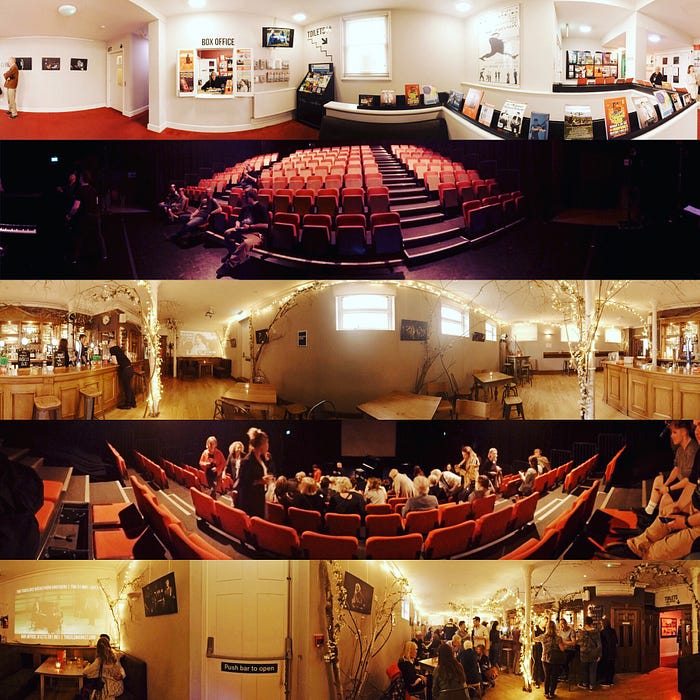The final_v9 part! But be sure to read Pt.1, Pt.2, Pt.3, Pt.4, Pt.5, Pt.6, Pt.7 & Pt.8
xR4Good
Scrolling through some old photos reminded me to write this section and I can’t believe it wasn’t in my initial thoughts of what I’d write about as it’s the most important area of my work to me! Duh…
In all my previous roles I’ve always tried to ensure there is an element of reaching out and inclusion or ways of using technology for good. From incorporating W3C WAI accessibility standards and testing into training content in 2002 to launching a games QA NVQ Level 3 certification for NEETs to enable bridges into the industry in 2007, I wanted to make sure as a studio we had a strong focus on making sure we could help people get into the industry or use the tech to improve lives for others.

The approach started small, related to the small size of the studio, team and available budgets but gradually grew over the years as did the studio, team and financial security to spend on giving back. From doing talks in schools and code clubs, this was relatively inexpensive as it was just an hour of my time here and there but bigger projects, like working with Stay Up Late took multiple days of my time over longer periods.
Doing talks in schools, colleges and universities lead to working with Declan Cassidy (and what has now become the amazing Into Games organisation,) to run a test virtual work experience week with local college for NEETs, DV8 Sussex. Thanks to the brilliant teachings of Nick Dunn at the time, 7 students set about operating a game dev studio from the college for a week to design, build and demonstrate a game they’d made from our brief, in this case a new minigame for what could be Loco Dojo 2.

We popped in physically at the end of their first day, amazed to discover that they had arranged themselves very efficiently with a student studio team member each looking after design, art, code, testing, marketing, production and project management. At the end of the week they came and presented their idea to the team and had a working demo to try out. It was better than some of the initial prototypes we’d concocted when originally developing Loco Dojo back in late-2016. It really captured the sense of stupid nonsense we based the game around but also showed a great understanding of what makes interactions fun in VR. I truly hope one day “Not Joust Any Sandwich” gets to live on a fully polished minigame. It’s amazing to see that initial idea blossom into what Into Games now is (you should totally become a Video Games Ambassador if you can spare some time).
At one of the many VR events I went to, I met Paul Richards, who heads up the local charity for people with learning disabilities Stay Up Late & Gig Buddies. I was already aware of Paul’s work through my wife and through her work, via an introduction to Heavy Load, a punk band consisting of members with learning disabilities. We got chatting about using VR for good around his idea of enabling social confidence amongst their members to visit venues for events and music acts.

Some discussion later we decided to trial filming a venue with a 360º camera to view the footage back on a VR headset to see if a sense of awareness of the layout of a venue, plus what it felt like to attend a live event there, would help. Then I remembered the Google DayDream Impact programme, where Google were sending their monster Jump Odyssey 360º cameras (x16 GoPros strapped together into a 3D-printed network rig) out to good causes to film documentaries and narrative experiences.

One application and a few months later, a massive Pelicase and box of phones and Google Cardboards arrived at the studio. Meeting Paul and some of the other Stay Up Late members, we talked about filming, what we would want to film to show people, and which venues we should approach to film at first. I taught the members about VR and how to use the camera before setting off to our first venue, the ever-approachable The Old Market theatre (who already ran Stay Up Late disco nights for members).

We ended up filming 6 locations around Brighton over a couple of months; TOM, Brighton Centre, Brighton Dome, Komedia, Concorde2 and Loading. We filmed a variety of areas of each location when closed, to be able to focus on layout and location, and then shots of live events and shows (where allowed). You can see all these on the playlist on the Make Real YouTube channel.

For the final location filming, we were joined by the Google DayDream Impact documentary team, who wanted to feature our efforts and story in a film they were making about the programme. They spent a day following a member around doing everyday stuff in their life before meeting with a Gig Buddies ambassador to attend an event at the location. They also filmed us filming the location and preparing the film for people to see and use.

Unfortunately shortly after that, Google killed off DayDream View VR headset, the Impact programme and recalled all the Jump 360º cameras, so the documentary never saw the light of day and we’ve not even seen an unlisted rough cut or anything. A big disappointment for all after all that hard work and effort that went into it.
Other organisations and things we sponsored over the years include Codebar, a global charity setup to promote facilitation of the growth of a diverse and inclusive tech sector. The local Brighton branch meet regularly, hosted by sponsor organisations to give up some of their studio space for meetings and provide drinks and pizza for the 30-odd members and code coaches. We did this for a year whilst we could with the space in our last location before lockdown. Whilst most of the regulars and coaches were learning web development, there was an interest in how to code for Unity and VR too.
We also sponsored the Meetup fees for the Brighton Indies game developers meetup group, which met once a month in a local pub and weekly for morning coffees. The purpose of the group was to provide community, interaction, support and advice for local indie game developers looking to grow their skills and talent within all aspects of game design, and just be a friendly place to hang out and meet like-minded people, open to all.

We also supported the disabled gamers charity Special Effect through their One Special Day annual campaign by donating the days sales revenue to the organisation each year. Whilst never huge amounts of cash, every little helps.
My most memorable, profound experience was my two trips to the Blind Veterans UK — Brighton location, as part of their regular tech weeks, to do talks about and run VR demos for the members. BVUK supports veterans with partial or full sight loss through service. I’ve written about the experience in greater detail previously, which you can read here, but it still lingers with me today the impact the technology had at the time and could have in the future.

As I come to the end of my time at Make Real, it’s great to have to have gotten a project off the ground that I started 4 years ago — putting VR training into prisons to give inmates skills that could be used upon release, to hopefully give them employment and an improved chance of not reoffending.
Literally my last weeks were spent running a pilot at HMP Isis YOI in partnership with Bounceback and Keltbray, to run sessions around construction training that hopefully will be measured and deemed effective by City & Guilds to fund and rollout a wider programme of access and enablement across the country.
Wrap-Up
I’ve waffled on long enough and it’s now October, maybe even November if it took you that long to read, ready to publish this series of blog posts as I prepare to announce my new role publicly. Time to scrub my brain of which company I mean when I say “we”, “our”, “us” etc…
It’s been an amazing experience working at Make Real over the past 9.x years, I’ve pushed for a lot, was given a lot of freedom and the studio team have created some remarkable experiences. I’ll always be thankful for my time there.

They’re also really nice people, intelligent, experienced and super-awesome at what they do. Seeing the team grow from 4 when I first joined to the current approx’ 35 full time people and a number of freelancers has been a joy to see. I’m gonna miss those crazy bastards but no doubt they will still be in my life in various forms at events etc as I step into the new role at HTC Vive // Viveport. Be sure to tap them up to talk about creating immersive learning experiences, there’s many more folk there now far cleverer than I am. They thrive with a challenge of something thought impossible; they always make it possible.
Of course if you’re reading this and have a VR experience you’re looking to bring to the Viveport platform like, with Vive Pro 2, Focus 3 or Flow support, reach out to me in my new role and let’s have a chat about how we can work together in the future.
